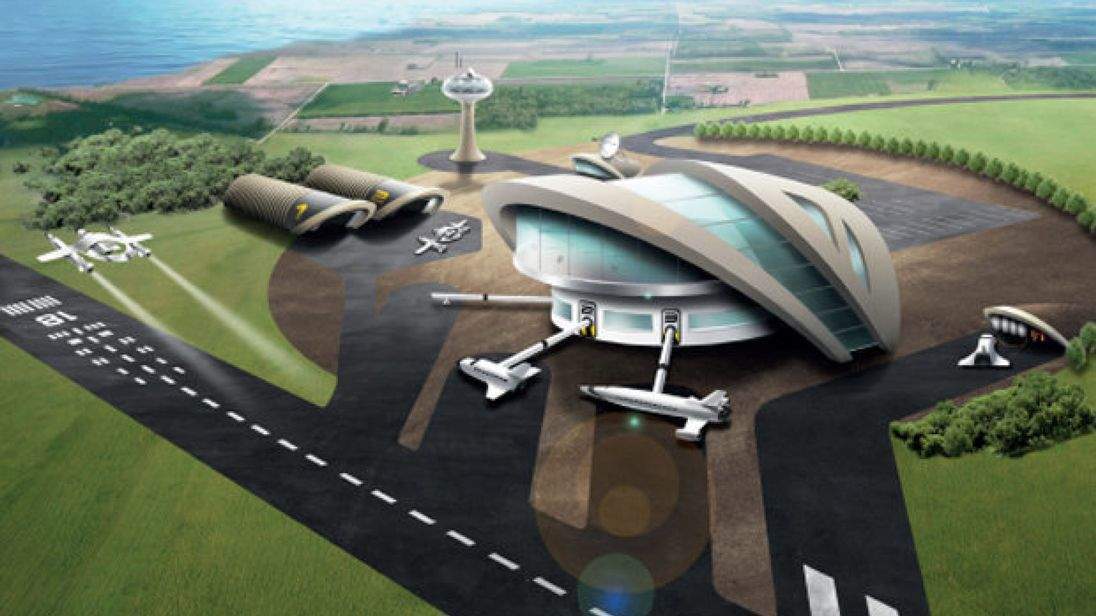
The UK space industry is counting down to lift off as a new space law receives royal assent allowing the country to build its first spaceport and cash in on the commercial space race.
A new law allowing companies to launch commercial space missions from spaceports on British soil will be signed off by the Queen today.

Access deeper industry intelligence
Experience unmatched clarity with a single platform that combines unique data, AI, and human expertise.
It’s expected to boost the UK’s share of the global space market from 6.5% to 10% by 2030, according to the government funded Satellite Applications Catapult.
Transport Minister Jo Johnson said:
The Space Industry Bill gives companies the ability to launch satellites from UK soil, putting us at the forefront of the new space race, and helping us to compete as the destination of choice for satellite companies worldwide.

The law could transform the UK into “a one-stop shop for satellite services and the best place in Europe to start and grow a space business”, the government said.

US Tariffs are shifting - will you react or anticipate?
Don’t let policy changes catch you off guard. Stay proactive with real-time data and expert analysis.
By GlobalDataJules Matteoni, operations director at Glasgow Prestwick a site earmarked for possible spaceport, said:
This means we will be able to offer horizontal launches of orbital and sub-orbital missions for satellite launches, micro-gravity experiments and passenger spaceflight experiences.
As soon as the Space Industry Bill is enacted and a regulatory framework is in place, we will seek to apply for a licence and expect to become the first fully operational, licensed spaceport in the UK and Europe.
Science minister Sam Gyimah said the bill is part of the UK’s Industrial Strategy to open up space opportunities, and pioneer new technologies, infrastructure and services.
“The Space Industry Bill offers an exciting opportunity for the UK to soar to new heights and be at the forefront of the commercial space age,” he said.
This will open up the UK to new frontiers, transforming the way we live, and establishing us as a space flight leader.
UK Space Agency chief executive Graham Turnock said:
The Space Industry Bill guarantees the sky is not the limit for future generations of engineers, entrepreneurs and scientists. We will set out how we plan to accelerate the development of the first commercial launch services from the UK, and realise the full potential of this enabling legislation over the coming months.
Graham Carberry, partner at merger and acquisition and debt advisory firm Livingstone, who works closely with space tech investors, said the new law doesn’t guarantee success in the UK’s space industry:
This is a significant step towards seizing a leading global position in the competitive commercial space market. It provides welcome clarity to an area which has historically lacked regulatory guidance, and a sense of certainty which will likely encourage further investment.
Commercial success for a UK spaceport is not a given. In investment terms, we still lag behind the US, and several European countries are eyeing slices of the market.
Geographically we are not well placed as the vast majority of satellites are launched from the equator, simply because it’s far more fuel efficient to fire them into low earth orbit.”
Despite this, the UK has a lot to offer space investors. We have a strong grounding in aerospace and defence manufacturing and the talent pool to match it. The bill could be key to achieving lift-off.
Why it matters:
The government hopes that the nation’s first spaceports will help the UK develop as a hub for space research and tourism, and generate billions of pounds and hundreds of jobs as firms like Airbus consider moving operations abroad.
It will also guarantee the UK’s continued access to satellite space missions and generate interest and investment in the space industry in the UK, especially as British space firms complain of losing out on lucrative space contracts with European companies due to Brexit.
Simon Henley, president of the Royal Aeronautical Society, explained how the UK’s £13bn-a-year aerospace industry was being side-lined by the EU:
Many of the (ESA) contracts, including Galileo, are EU funded and it is a requirement that the companies who participate and get funding and bid for contracts are part of an EU country. We are already seeing contracts being turned away from UK industry because of the uncertainty.
Background:
Last year Westminster started discussing possible locations for the UK’s first launch facilities, three of which are in Scotland.
Glasgow is fast emerging as a centre for satellite technology, with companies based in the region having created around 70 satellite spacecraft, more then any global space hub excluding California.
The shortlisted sites are:
-
Glasgow Prestwick Airport — serving western Scotland
-
Campbeltown — a disused RAF base, now host to the Mull of Kintyre music festival
-
Stornoway — a town of 10,000 in an island off the northwestern tip of Scotland
-
Newquay Airport — Cornwall’s main commercial airport and a former RAF base
-
Llanbedr Airport — in Wales







